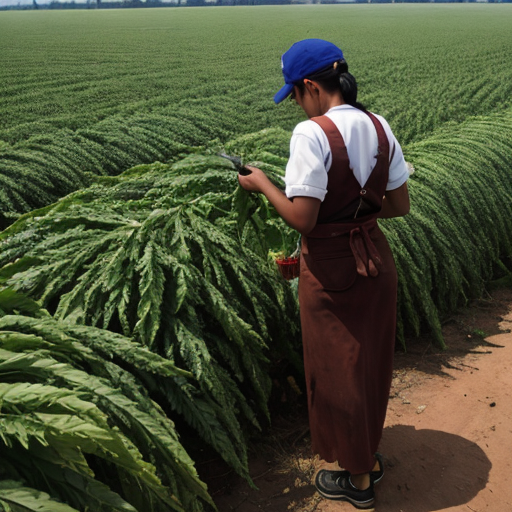31. March 2024
Where workers are exploited to harvest an everyday ingredient

Where workers are exploited to harvest an everyday ingredient
Workers in Brazil rely on harvesting wax from carnauba palm trees to earn a living. But the power is in the hands of big business who, authorities say, are turning a blind eye to exploitation. Seven cars are driving in convoy across Piauí’s arid landscape. Carnauba palm trees are scattered all over Piauí, the world’s biggest producer of the wax.
The industry sustains the lives of around half a million Brazilians. Last year, 114 workers were rescued from carnauba plantations, Brazilian government figures show. The International Labour Organization says slave-like labour is common in rural areas of Brazil. The number of rescues has hit the highest number since 2009 with 3,190 rescues.
The definition of slavery includes debt bondage, degrading work conditions and long hours that risk workers’ health. Of 19 workers, only two are officially on the books. The rest work cash-in-hand, receiving 70 reais ($14; £11) a day. Outside of the harvesting period, they tend to their own crops.
The carnauba palm is the tree of thorns in the Tupi indigenous language. Several workers say they were not given any safety equipment. The inspectors point out that the workers appear to have little training. Back at the accommodation block, the boss, Edmilson da Silva Montes, has turned up.
He is angry he has been caught. He says the government needs to give small producers like him more of a chance. Gislene hands him a fine of $30,000 (£23,700) for 15 infractions. They include slave-like labour conditions, failing to register workers and not providing sufficient work clothes.
Edmilson is adamant he is doing his best, despite this being the third time he has been caught. The authorities say the high level of informality in the industry makes tracing the carnauba wax back to big companies a difficult task. In 2016, the ministry of labour asked the five biggest wax processing companies to sign an agreement committing themselves to improving the supply chain. The biggest processor that signed is Brasil Ceras, a company that counts L‘Óreal as one of its clients.
Small producers who work as a family unit do not have to submit a paper trail when they sell their wax. But there is no paper trail linking these producers to Brasil Ceras. The ministry of labour says one explanation is that, legally, small producers don’t need to submit paper trails. L‘Óreal says it is committed to ethical sourcing.
Brasil Ceras says it only buys from families and companies that can prove they comply with labour laws. But police and prosecutors argue that no company buying from the carnauba industry - big or small - can profess to have a clean production chain. There’s what we call deliberate blindness. It“s comfortable for the industry not to see the problems, because they don#38;t need to act, they don’#39%;t need investment.
They don�#40;tneed to pay. They’re comfortable with it.